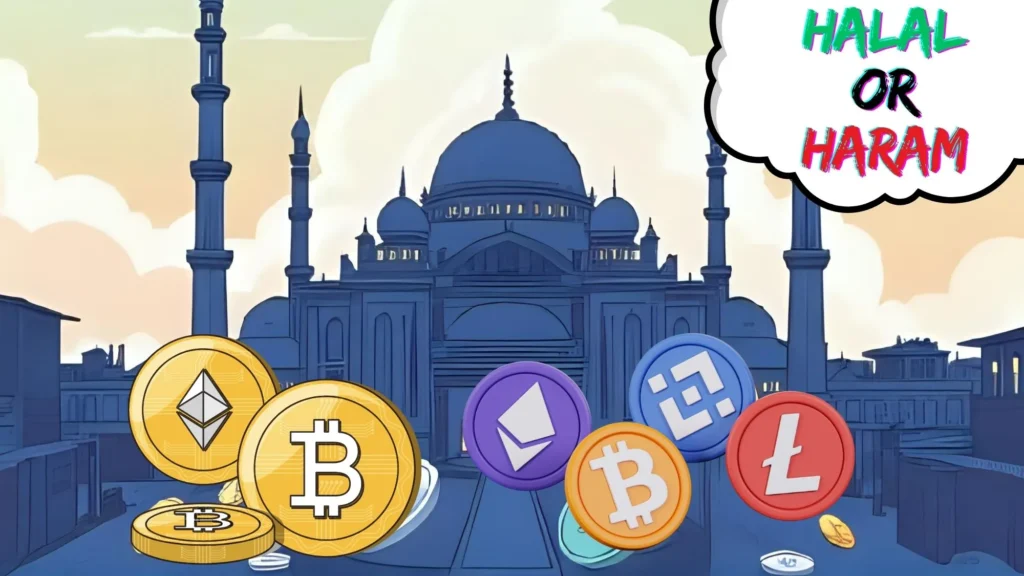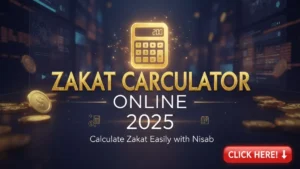Crypto Halal: Navigating the Digital Frontier with Shariah Principles
Introduction: A Guiding Light in the World of Digital Assets
Listen This Article in Urdu/Hindi Audio
The landscape of finance is undergoing a profound transformation, with cryptocurrencies and blockchain technology emerging as powerful, yet often perplexing, innovations. For Muslims, this evolving digital realm presents a unique set of considerations: how do we engage with these new financial instruments while upholding the timeless principles of our faith? This question is not merely a technical one; it touches upon our deepest convictions about ethical conduct, justice, and permissible earnings. This article aims to serve as a comprehensive guide, meticulously examining various cryptocurrencies through the lens of Shariah (Islamic law), offering clarity and practical insights for the conscientious Muslim investor. Our goal is to empower you with the knowledge to make informed decisions that align with Islamic values, ensuring your participation in the digital economy is both spiritually sound and financially prudent.
Understanding the Bedrock: Islamic Finance Principles and Digital Assets
Islamic finance is a system built upon a robust ethical framework, distinct from conventional finance. Its core tenets are derived from the Quran and the Sunnah (the teachings and practices of Prophet Muhammad, peace be upon him), designed to foster fairness, discourage exploitation, and promote societal well-being. To assess the Shariah compliance of cryptocurrencies, we must first revisit these foundational principles.
Use Other Tools:
The Pillars of Prohibition: Riba, Gharar, and Maysir
At the heart of Islamic financial ethics lie three fundamental prohibitions. Any financial activity, including dealing in digital assets, must be free from these elements to be considered permissible:
1. Riba (Interest or Usury)
Riba refers to any predetermined, fixed return on a loan or an unjustified increase in wealth without corresponding risk or effort. It is unequivocally prohibited in Islam, as it is seen as an exploitative practice that creates wealth without genuine productive activity or shared responsibility. The Quran sternly warns against Riba:
“O you who have believed, do not consume Riba, doubled and multiplied, but fear Allah that you may be successful.” (Quran 3:130)
In the context of digital assets, the prohibition of Riba means that any cryptocurrency or associated financial product that inherently generates or facilitates interest-based earnings is impermissible. This includes lending cryptocurrencies at a fixed interest rate or engaging in staking mechanisms that guarantee a fixed return regardless of the underlying asset’s performance. The very design and economic model of a cryptocurrency must be scrutinized to ensure it does not rely on Riba for its value or operation.
2. Gharar (Excessive Uncertainty or Ambiguity)
Gharar denotes excessive uncertainty, ambiguity, or deception within a contract or transaction. It prohibits dealings where the outcome is unduly uncertain, or where there is a lack of clear information about the subject matter, price, or terms of the agreement. The Prophet Muhammad (peace be upon him) explicitly forbade transactions involving Gharar, emphasizing the importance of transparency and clarity to prevent disputes and exploitation [1].
For cryptocurrencies, Gharar is a significant point of discussion. The inherent volatility of many digital assets, coupled with the often complex and opaque nature of some projects, raises concerns. However, it is crucial to distinguish between acceptable market risk and prohibited excessive Gharar. If the risks are transparent, the terms are clear, and the asset has a genuine underlying utility, the transaction may be permissible. The transparency offered by blockchain technology, in some cases, can
actually help mitigate certain forms of Gharar by providing an immutable record of transactions.
3. Maysir (Gambling or Speculation)
Maysir refers to gambling or any activity where wealth is acquired by chance, without productive effort or legitimate risk-taking. It encompasses transactions that are purely speculative, resembling games of chance rather than genuine economic activity. The Quran explicitly prohibits Maysir, linking it with intoxicants as a defilement from the work of Satan:
“O you who have believed, indeed, intoxicants, gambling, [sacrificing on] stone alters [to other than Allah], and divining arrows are but defilement from the work of Satan, so avoid it that you may be successful.” (Quran 5:90)
Concerns about Maysir in the crypto space often arise from the highly speculative trading of assets with no clear utility, or those promoted solely for rapid, unsustainable price increases (e.g., certain meme coins). Day trading or investing with the sole intention of quick, unearned gains, without understanding the underlying technology or project, can indeed fall under Maysir. However, if a cryptocurrency serves a legitimate purpose and its value is tied to a real-world utility or project, then acquiring it for investment purposes, with due diligence and a long-term perspective, is generally not considered Maysir. The intent and methodology of the investor are paramount here.
The Concept of Mal (Wealth or Asset) in Islam
For any item to be transacted or invested in within Islamic finance, it must first qualify as Mal. Mal, in Islamic jurisprudence, signifies anything that has value, can be owned, and from which benefit can be derived. This is a foundational requirement for the validity of any financial transaction. The debate surrounding cryptocurrencies often includes whether their intangible nature and volatility prevent them from being considered Mal. However, many contemporary scholars agree that if a cryptocurrency possesses a real use case, is accepted as a medium of exchange, and can be exchanged for goods, services, or other assets, it can indeed be classified as Mal. This acceptance and utility are key to its recognition as a legitimate asset within the Shariah framework.
Which Cryptocurrencies Meet Shariah Criteria? A Deep Dive
Determining the Shariah compliance of specific cryptocurrencies is a complex task, as it requires a thorough understanding of both Islamic finance principles and the intricate technicalities of each digital asset. There is no single, universally agreed-upon list, and scholarly opinions can vary. However, by applying the principles of Riba, Gharar, Maysir, and the concept of Mal, we can evaluate some of the most prominent cryptocurrencies.
1. Bitcoin (BTC): The Pioneer’s Path to Permissibility
The Verdict: A significant number of contemporary Islamic scholars generally consider Bitcoin permissible, albeit with important caveats regarding its usage and the investor’s intent.
Why it Matters: Bitcoin, as the first and largest cryptocurrency, often sets the precedent for how other digital assets are viewed. Its decentralized nature and finite supply are key characteristics that align with certain Islamic principles.
Shariah Analysis: * Mal Status: Bitcoin is widely accepted as a medium of exchange and a store of value across various platforms and communities. This broad acceptance and its utility in facilitating transactions lend it the status of Mal. * Riba: Bitcoin itself does not generate interest. Its value fluctuates based on market dynamics of supply and demand, not through interest-bearing mechanisms. Therefore, merely holding or trading Bitcoin does not inherently involve Riba. * Gharar: Bitcoin’s notorious price volatility is a primary concern for Gharar. However, many scholars argue that this volatility, while high, is a market characteristic and not an inherent deception or excessive uncertainty in the contract itself. As long as participants are aware of the risks and the transaction is transparent (which Bitcoin’s public ledger ensures), the Gharar is not considered prohibitive. It’s a known risk, not a hidden one. * Maysir: Purely speculative trading of Bitcoin, driven by a gambling mentality, can indeed fall under Maysir. However, if Bitcoin is acquired for its utility as a medium of exchange, a store of value, or as part of a long-term investment strategy based on its underlying technology and increasing adoption, it is generally considered permissible. The distinction lies in the investor’s intention and approach: is it a calculated investment or a mere gamble?
Scholarly Insight: Mufti Faraz Adam, a leading Islamic finance scholar, has provided detailed analyses suggesting Bitcoin’s permissibility as a digital asset and medium of exchange, provided its use is for permissible purposes [2]. The International Islamic Fiqh Academy (IIFA) has also engaged in discussions on digital currencies, indicating an evolving understanding and potential for acceptance [3].
2. Ethereum (ETH): The Platform for Innovation
The Verdict: Generally considered permissible, largely due to its foundational role as a platform for decentralized applications (dApps) and smart contracts.
Why it Matters: Ethereum is more than just a cryptocurrency; it’s a programmable blockchain that enables a vast ecosystem of decentralized applications, from finance to gaming. Its utility extends beyond simple value transfer.
Shariah Analysis: * Mal Status: Ether (ETH), the native token of the Ethereum blockchain, is essential for powering transactions and computational services on the network (known as ‘gas’). This clear and fundamental utility firmly establishes its status as Mal. * Riba: ETH itself does not generate interest. Its value is driven by its utility within the Ethereum ecosystem and the demand for its services. * Gharar: While ETH also experiences volatility, its robust underlying utility as the ‘fuel’ for a massive and growing ecosystem of dApps, smart contracts, and decentralized finance (DeFi) projects significantly mitigates concerns about excessive Gharar. The transparency and open-source nature of the Ethereum blockchain further reduce ambiguity. * Maysir: As with Bitcoin, purely speculative trading of ETH can be problematic. However, its primary function as a platform for innovation means that holding or using ETH for its utility, or investing in projects built on Ethereum that are themselves Shariah compliant, is permissible. The permissibility of specific dApps or tokens built on Ethereum requires separate Shariah screening.
Scholarly Insight: Amanie Advisors, a respected Shariah advisory firm, has issued a comprehensive Shariah whitepaper on Ether, concluding its permissibility based on its utility and the absence of inherent Riba, Gharar, or Maysir in its core design [4].
3. Stablecoins: Bridging Fiat and Crypto
The Verdict: Permissibility is highly conditional, depending critically on the nature of their backing assets and how those assets are managed.
Why they Matter: Stablecoins aim to minimize volatility by pegging their value to a stable asset, typically a fiat currency like the US Dollar. They offer a bridge between the traditional financial system and the crypto world.
Shariah Analysis: * Mal Status: Stablecoins, particularly those pegged to fiat currencies, derive their value from the underlying reserve assets, thus qualifying as Mal. * Riba: This is the most critical point for stablecoins. If the reserves backing the stablecoin are held in interest-bearing accounts (e.g., conventional bank accounts earning interest) or invested in interest-generating instruments (e.g., conventional bonds), then the stablecoin would be deemed impermissible due to Riba. However, if the reserves are held in non-interest-bearing accounts or invested in Shariah compliant assets (e.g., physical gold, Shariah-compliant commodities), then the stablecoin can be permissible. * Gharar/Maysir: Stablecoins are designed to reduce volatility, which inherently mitigates some Gharar concerns. However, the transparency and auditability of the reserves are paramount to avoid ambiguity and potential deception. Algorithmic stablecoins, which rely on complex algorithms rather than tangible reserves to maintain their peg, often introduce higher levels of Gharar and Maysir due to their inherent instability and speculative nature, as evidenced by past failures in the market.
Practical Example: A stablecoin backed 1:1 by physical gold held in a Shariah compliant vault, with transparent auditing, would likely be permissible. Conversely, a stablecoin whose reserves are invested in short-term US Treasury bills (which yield interest) would not be Shariah-compliant.
4. Islamic Coin (ISLM) and HAQQ Network: Built for Compliance
The Verdict: Explicitly designed to be Shariah-compliant and has received formal Fatwas from prominent Islamic scholars.
Why they Matter: Islamic Coin and the HAQQ Network represent a new wave of digital assets specifically engineered from the ground up to adhere to Islamic principles, offering a dedicated ecosystem for ethical Web3 development.
Shariah Analysis: * Purpose-Built Compliance: Islamic Coin (ISLM) is the native currency of the HAQQ Network, a blockchain ecosystem meticulously constructed with Shariah compliance as its core philosophy. The project’s explicit mission is to provide an ethical, Shariah-compliant financial infrastructure for the global Muslim community. * Dedicated Shariah Advisory Board: A distinguishing feature is its
robust Shariah Board, composed of highly respected Islamic scholars. This board provides continuous oversight, ensuring that all aspects of the project, from its technical design to its operational policies, remain in strict adherence to Islamic finance principles. This provides a strong layer of independent verification and trust. * Evergreen DAO: A unique and commendable feature of Islamic Coin is its Evergreen DAO (Decentralized Autonomous Organization). A significant portion of newly minted ISLM is automatically allocated to Islamic charities and initiatives, embodying the Islamic principle of social welfare (Maslahah) and wealth redistribution. * Transparency and Utility: The project emphasizes transparency in its operations and aims to build a functional Web3 ecosystem that serves real-world needs in a Shariah compliant manner.
Scholarly Insight: Islamic Coin has received formal Fatwas from leading Islamic scholars, including those from Al-Azhar University, affirming its Shariah compliance [6]. This makes it a pioneering example of a cryptocurrency with explicit and proactive scholarly endorsement for its design and purpose.
5. Decentralized Finance (DeFi) and NFTs (Non-Fungible Tokens): A Nuanced Landscape
The Verdict: Highly nuanced; permissibility depends entirely on the specific protocol, underlying assets, and use case. A blanket ruling is not possible.
Why they Matter: DeFi aims to recreate traditional financial services (lending, borrowing, trading) on the blockchain without intermediaries. NFTs represent unique digital assets, from art to collectibles, offering new forms of ownership.
Shariah Analysis: * DeFi: Many DeFi protocols, in their current form, present significant Shariah challenges. Lending and borrowing protocols often involve interest-based mechanisms (Riba). Yield farming and liquidity provision can sometimes involve excessive speculation (Maysir) or unclear contractual terms (Gharar). However, the underlying technology of DeFi – peer-to-peer transactions, smart contracts, and disintermediation – aligns well with Islamic finance’s emphasis on direct dealings and risk-sharing. Therefore, specific DeFi applications, such as those facilitating ethical peer-to-peer financing (e.g., Qard Hasan, Murabaha-like structures) or asset-backed tokenization, could potentially be structured in a Shariah-compliant manner. Each protocol requires individual, rigorous Shariah screening. * NFTs: The permissibility of NFTs hinges on two main factors: the nature of the underlying asset they represent and the transaction itself. If an NFT represents a permissible digital
asset (e.g., digital art that does not depict Haram imagery, intellectual property rights for a Halal product, or a tokenized share in a permissible physical asset) and the transaction is free from Riba, Gharar, and Maysir, it could be permissible. However, NFTs representing Haram content (e.g., pornography, gambling-related imagery) or those used purely for speculative flipping without any underlying utility or artistic value would be impermissible. The concept of ownership and transfer of rights in NFTs also requires careful Shariah analysis to ensure it aligns with Islamic contractual law.
Scholarly Insight: There is no universal Fatwa for the entire DeFi or NFT space. Scholars emphasize a case-by-case analysis. Promising initiatives are underway to develop Shariah-compliant DeFi protocols and NFT marketplaces that adhere to Islamic principles, focusing on real utility and ethical content [7].
How to Conduct Your Own CryptoHalal Screening: A Practical Guide
Given the dynamic nature of the cryptocurrency market and the varying scholarly opinions, it is crucial for every Muslim investor to develop a framework for personal due diligence. Here’s a practical, step-by-step guide to help you assess the Shariah compliance of any cryptocurrency:
1. Understand the Core Technology and Purpose: What problem does this cryptocurrency or blockchain project aim to solve? What is its fundamental utility? Is it merely a speculative asset, or does it have a genuine use case (e.g., facilitating payments, powering a decentralized application, securing a network)? A clear, beneficial utility is a strong indicator of permissibility.
2. Scrutinize the Economic Model: Is it Free from Riba?
Does the cryptocurrency itself generate fixed, guaranteed returns (like interest)?
Are there any lending or borrowing mechanisms within its ecosystem that involve Riba?
If it’s a Proof-of-Stake (PoS) coin, how are staking rewards generated? Are they a fixed, predetermined return (Riba concern) or a share of transaction fees/newly minted coins based on network participation and risk
(potentially permissible)? Look for models where rewards are tied to effort, risk, and service provision, not just capital accumulation.
3. Assess for Excessive Gharar and Maysir:
Transparency: Is the project’s whitepaper clear and comprehensive? Is the team identifiable? Is the code open-source and auditable? Lack of transparency increases Gharar.
Volatility vs. Speculation: While all crypto is volatile, is the project designed for pure speculation (Maysir) or does it have a long-term vision and fundamental value? Avoid projects that are essentially digital gambling dens or pump-and-dump schemes.
Underlying Asset/Utility: Does the crypto represent ownership in a real asset or provide access to a tangible service? This reduces Gharar. For example, a token representing a share in a Halal real estate venture is less prone to Gharar than a meme coin with no utility.
4. Examine the Ecosystem and Use Cases:
What kind of dApps or services are built on this blockchain? Are they Shariah-compliant? For instance, a blockchain primarily hosting gambling dApps would be problematic, even if the native token itself seems neutral.
Is the cryptocurrency used for any Haram activities (e.g., illicit trade, funding prohibited businesses)? While difficult to control entirely, a project’s stated mission and community usage patterns can offer clues.
5. Seek Shariah Endorsement (if available):
Has a reputable Shariah Advisory Board (SAB) or recognized Islamic scholar issued a Fatwa or opinion on this specific cryptocurrency or project? Look for clear, well-reasoned rulings from credible sources. Be wary of vague endorsements or those from unknown entities.
Does the project have an active SAB that continuously monitors its operations for compliance?
6. Consider the ‘Mal’ Status: Can the cryptocurrency be genuinely owned, transferred, and used for beneficial purposes? Is it accepted as a medium of exchange or a store of value within a community? This confirms its status as a legitimate asset.
By systematically asking these questions, you can navigate the complexities of the crypto market with greater confidence and ensure your investments align with your Islamic values. Remember, the onus is on the individual to ensure their earnings are Halal.
Diverse Scholarly Opinions: A Spectrum of Views
The novelty and rapid evolution of cryptocurrencies have naturally led to a spectrum of scholarly opinions within the Islamic world. This diversity is a sign of healthy intellectual discourse, as scholars grapple with applying timeless principles to unprecedented technological advancements. While a universal consensus is still forming, several key viewpoints have emerged:
The Cautious and Prohibitive Stance
Some early Fatwas and scholars adopted a cautious, often prohibitive, stance. Their concerns primarily revolved around:
Extreme Volatility: Viewed as excessive Gharar, making the asset too risky and akin to gambling.
Lack of Central Authority/Regulation: The decentralized nature was seen as a weakness, leading to concerns about fraud, money laundering, and consumer protection. Some argued that a currency must be issued and regulated by a recognized authority to be legitimate Mal.
Absence of Intrinsic Value: The argument that cryptocurrencies lack a tangible underlying asset or intrinsic value, making them purely speculative bubbles.
Potential for Illicit Use: Concerns that the anonymity of some cryptocurrencies could facilitate Haram activities.
Example: The Grand Mufti of Egypt, Shawki Allam, issued a Fatwa in 2018 declaring Bitcoin trading as against Islamic Shariah, citing its speculative nature and potential for harm [8]. Similarly, the Syrian Islamic Council issued a Fatwa in 2019 declaring cryptocurrencies like Bitcoin as Haram [9].
The Permissive Stance with Conditions
An increasing number of contemporary scholars and Islamic finance institutions have adopted a more nuanced and permissive view, provided certain conditions are met. Their arguments often highlight:
Utility and Acceptance: If a cryptocurrency has a real use case, is accepted as a medium of exchange, and can be exchanged for goods and services, it qualifies as Mal.
Distinction between Volatility and Gharar: They argue that market volatility is a feature of many assets (e.g., stocks, commodities) and does not automatically constitute prohibited Gharar, especially if risks are transparent. Excessive Gharar refers to hidden or unknown risks.
Blockchain’s Transparency: The underlying blockchain technology, with its immutable and transparent ledger, is seen as aligning with Islamic principles of accountability and record-keeping.
Intent of Use: The permissibility hinges on how the cryptocurrency is used. If for legitimate transactions or investments based on utility, it’s permissible; if for pure gambling or illicit activities, it’s Haram.
Example: Mufti Faraz Adam, a prominent Islamic finance scholar, has been instrumental in articulating this nuanced view, emphasizing the importance of utility and the absence of Riba, Gharar, and Maysir in the core design and use of the crypto asset [2]. The Fiqh Council of North America (FCNA) has also indicated that Bitcoin can be treated with the same Islamic rulings that apply to all fiat currencies, implying permissibility under certain conditions [10].
The Technology vs. Application Distinction
There is a broad consensus that the underlying blockchain technology itself is generally permissible. Its features like decentralization, transparency, and immutability can even be seen as aligning with Islamic values of justice and accountability. The debate, therefore, shifts from the technology itself to its applications and the specific cryptocurrencies built upon it. This distinction is crucial: a Halal technology can be used for Haram purposes, and vice-versa.
Scholarly Consensus (Emerging): While a definitive, global Fatwa on all cryptocurrencies remains elusive due to their diversity and rapid evolution, there is an
emerging consensus among many Islamic finance experts that:
Blockchain technology is permissible.
Cryptocurrencies with genuine utility, transparent mechanisms, and no inherent Riba, Gharar, or Maysir in their design can be permissible.
The permissibility of associated activities (e.g., staking, DeFi, NFTs) depends on their specific structure and adherence to Shariah principles.
It is vital for Muslim investors to seek guidance from qualified Islamic scholars or reputable Shariah advisory firms, understanding that rulings can vary based on methodology and interpretation. Continuous learning and due diligence are key.
Practical Examples of Shariah-Compliant Crypto Assets and Projects
While the landscape is dynamic and requires ongoing vigilance, certain types of crypto assets and projects are generally viewed as more aligned with Shariah principles. These examples illustrate how Islamic finance principles are being applied in the digital realm:
1. Utility Tokens with Halal Use Cases
Description: These are tokens that provide access to a specific service or product within a Shariah-compliant ecosystem. They are not primarily for speculation but serve a functional purpose.
Why they are Halal: Their value is derived from their utility, not from interest or excessive speculation. They represent a right to use a service or participate in a network, which is a legitimate form of Mal.
Practical Example: A token used to pay for services on a decentralized Halal streaming platform, or a token that grants voting rights in a Shariah-compliant decentralized autonomous organization (DAO) focused on ethical investments. The key is that the underlying service or project must itself be Halal.
2. Asset-Backed Tokens (Tokenized Real Assets)
Description: These are digital tokens that represent ownership of a real-world, tangible asset. This could be physical gold, silver, real estate, or even shares in a Shariah-compliant business.
Why they are Halal: They directly link the digital asset to a physical, permissible asset, thereby eliminating concerns of Gharar (uncertainty) and ensuring the Mal status. They function similarly to Sukuk (Islamic bonds), representing ownership in real assets rather than debt.
Practical Example: A token where each unit is verifiably backed by a gram of physical gold stored in a secure vault, with regular audits to confirm the reserves. Or a token representing a fractional ownership in a Shariah-compliant real estate property, allowing investors to participate in rental income and property appreciation without Riba.
3. Shariah-Compliant Stablecoins
Description: As discussed earlier, these are stablecoins whose reserves are managed in a fully Shariah-compliant manner, avoiding interest-bearing accounts.
Why they are Halal: They provide the stability of fiat currency without violating the prohibition of Riba, provided their backing assets are held in non-interest-bearing accounts or permissible physical assets. This makes them a crucial tool for facilitating transactions within the crypto space without exposure to Riba.
Practical Example: A stablecoin pegged to the US Dollar, where the reserves are held in a non-interest-bearing bank account or invested in short-term, Shariah-compliant commodity Murabaha contracts. The transparency of the reserve audits is vital for maintaining trust and compliance.
4. Islamic Coin (ISLM) and HAQQ Network
Description: These are pioneering projects explicitly built from the ground up with Shariah compliance as their core design principle, aiming to create a dedicated ethical Web3 ecosystem.
Why they are Halal: They have a dedicated Shariah Advisory Board overseeing all aspects, from technical design to governance. Their economic model avoids Riba,
Gharar, and Maysir, and they actively promote social welfare through mechanisms like the Evergreen DAO, which allocates funds to Islamic charities. They have received formal Fatwas from respected scholars [6].
Practical Example: Investing in ISLM allows participation in a blockchain ecosystem designed for ethical finance, where dApps and services built on the HAQQ Network are intended to be Shariah-compliant. This offers a holistic approach to Halal crypto engagement.
5. Blockchain Platforms for Halal Industries
Description: These are blockchain networks or protocols specifically designed to serve and enhance Halal industries, such as Halal supply chain management, Islamic finance solutions, or ethical consumer goods tracking.
Why they are Halal: The underlying technology is used to facilitate and improve processes within permissible sectors. Investing in their native tokens (if they have utility) can be permissible, provided the platform itself and its operations adhere to Shariah principles.
Practical Example: A blockchain platform that tracks the entire supply chain of Halal meat, ensuring every step from farm to fork adheres to Islamic dietary laws. A token associated with this platform could be used for verification, payments, or governance within this Halal ecosystem.
The Human Element: Navigating with Wisdom and Caution
Beyond the technical and jurisprudential analyses, the journey into CryptoHalal requires a human touch – a blend of wisdom, caution, and a deep sense of responsibility. It’s not just about what is permissible, but how we engage with it.
The Importance of Continuous Learning
The crypto world is dynamic, constantly evolving with new technologies, use cases, and regulatory frameworks. What is considered permissible today might be re evaluated tomorrow as more information emerges or as the technology itself changes.
Therefore, continuous learning is not just an advantage; it’s a religious imperative. Stay informed by:
Following Reputable Scholars: Engage with the work of Islamic finance scholars who specialize in digital assets. Attend webinars, read their publications, and listen to their discussions.
Consulting Shariah Advisory Boards: Look for projects that have transparent and active Shariah Advisory Boards. Their ongoing oversight is invaluable.
Reading Whitepapers and Audits: Understand the technical and economic models of the cryptocurrencies you are interested in. Don’t just rely on marketing.
The Peril of Speculation and Greed
The allure of quick riches in the crypto market can be powerful, but it often leads to practices that border on Maysir (gambling) or excessive Gharar. As Muslims, our pursuit of wealth must always be balanced with ethical considerations and a long-term perspective. The Prophet Muhammad (peace be upon him) said: “Indeed, this wealth is green and sweet. And blessed is the Muslim’s wealth from which he gives to the poor, the orphan, and the wayfarer” [11]. This emphasizes the purpose of wealth beyond mere accumulation.
Avoid Pump-and-Dump Schemes: These are clear examples of Maysir and deception.
Invest, Don’t Gamble: Distinguish between calculated investment based on fundamental analysis and reckless speculation driven by hype.
Manage Risk: Understand that all investments carry risk. Do not invest more than you can afford to lose, and diversify your portfolio.
The Role of Intention (Niyyah)
In Islam, intention plays a crucial role in determining the nature of an act. While the objective Shariah compliance of a cryptocurrency is paramount, your personal niyyah (intention) behind engaging with it also matters. Are you investing to grow your wealth for permissible needs, to support innovative Halal projects, or purely for speculative gain with disregard for ethical boundaries? A pure intention, coupled with Shariah compliant means, leads to blessed earnings.
Frequently Asked Questions (FAQs)
Q1: Is all cryptocurrency Haram (forbidden) in Islam?
A1: No, it is an oversimplification to label all cryptocurrencies as Haram. The permissibility of a cryptocurrency depends on its underlying technology, its primary use cases, and whether it adheres to Islamic finance principles, particularly the avoidance of Riba (interest), Gharar (excessive uncertainty), and Maysir (gambling/speculation). Many scholars now differentiate between various types of cryptocurrencies, with some being deemed permissible under certain conditions.
Q2: What makes a cryptocurrency Shariah-compliant?
A2: A cryptocurrency is generally considered Shariah-compliant if it: * Qualifies as Mal (wealth/asset) by having real utility or accepted value. * Does not inherently involve Riba (interest) in its design or operation. * Avoids excessive Gharar (uncertainty) and Maysir (gambling/speculation) in its primary use cases and trading mechanisms. * Is not primarily used for Haram activities (e.g., illicit trade, funding prohibited businesses). * Ideally, has a clear Shariah Advisory Board or scholarly endorsement that continuously monitors its compliance.
Q3: Are Bitcoin and Ethereum Halal?
A3: Many contemporary Islamic scholars consider Bitcoin and Ethereum to be generally permissible. Bitcoin is often viewed as a digital asset or medium of exchange. Ethereum’s permissibility stems from its utility as a platform for decentralized applications. While both are volatile, this volatility is often seen as a market risk rather than prohibited Gharar, provided they are not used for purely speculative gambling and are acquired for legitimate purposes and utility.
Q4: What about stablecoins? Are they Halal?
A4: The permissibility of stablecoins depends entirely on their backing. If a stablecoin is backed by fiat currency reserves held in interest-bearing accounts or invested in interest-generating instruments, it would be problematic due to Riba. However, stablecoins backed by physical, Shariah-compliant assets (like gold or silver) or fiat
reserves held in non-interest-bearing accounts, with full transparency and auditability, can be considered permissible.
Q5: What is the role of a Shariah Advisory Board in crypto?
A5: A Shariah Advisory Board (SAB) comprises qualified Islamic scholars who review and approve all aspects of a cryptocurrency project or platform to ensure its adherence to Shariah principles. They provide independent oversight, issue fatwas (religious edicts), and guide the development and operation of Shariah-compliant digital assets, offering crucial assurance to Muslim investors. Their continuous monitoring is vital in this rapidly evolving space.
Q6: Can I invest in DeFi (Decentralized Finance) or NFTs (Non-Fungible Tokens) from an Islamic perspective?
A6: The permissibility of DeFi and NFTs is highly nuanced and requires a case-by-case analysis. Many DeFi protocols involve Riba or Maysir in their current forms. However, some DeFi applications could be structured permissibly if they involve real economic activity and avoid prohibited elements. NFTs are permissible if they represent Halal underlying assets and the transactions are free from Riba, Gharar, and Maysir. It is crucial to scrutinize each specific DeFi protocol or NFT project individually, focusing on its underlying purpose, economic model, and the nature of the assets involved.
Conclusion: Investing with Faith and Foresight
The journey into the world of cryptocurrencies for a Muslim investor is one that demands both intellectual rigor and spiritual mindfulness. It is a journey of seeking knowledge, exercising caution, and making choices that resonate with the profound ethical framework of Islam. While the digital asset landscape is complex and constantly shifting, the timeless principles of Shariah provide a clear compass.
By diligently understanding and applying the prohibitions of Riba, Gharar, and Maysir, and by prioritizing assets with genuine utility and transparent operations, Muslims can navigate this new frontier with confidence. The emerging ecosystem of purpose-built Shariah-compliant cryptocurrencies and blockchain projects offers exciting avenues for ethical wealth creation and community building. Remember, your investment is not just a financial transaction; it is an act of trust, a reflection of your values, and a
means to seek Allah’s blessings. May your endeavors in the digital economy be guided by wisdom, integrity, and lead to abundant, permissible returns.
References
Quran 3:130. Available at: https://quran.com/3/130
Quran 5:90. Available at: https://quran.com/5/90
[1] Hadith on Gharar (various sources, e.g., Sahih Muslim, Kitab al-Buyu”). For a general understanding, refer to: Islamic Finance Guru: What is Gharar?
Available at: https://www.islamicfinanceguru.com/articles/what-is-gharar-islamic-finance definitions-series
[2] Mufti Faraz Adam’s opinions on Bitcoin and other cryptocurrencies are widely available through his work with Amanie Advisors and Islamic Finance Guru. Example: Islamic Finance Guru: Are Bitcoin & Cryptocurrencies Halal?
Available at: https://www.islamicfinanceguru.com/articles/cryptocurrencies-like-bitcoin halal
[3] International Islamic Fiqh Academy (IIFA) discussions on digital currencies. Example: IIFA: Electronic Currencies.
Available at: https://iifaaifi.org/en/33163.html
[4] Amanie Advisors: Shariah Whitepaper on Ether.
Available at: https://amanieadvisors.com/shariah-white-paper-on-ethereum/
[5] Faisal Khan: Islamic Stablecoins.
Available at: https://faisalkhan.com/knowledge-center/payments-wiki/i/islamic-stablecoins
[6] Islamic Coin Official Website: Shariah.
Available at: https://islamiccoin.net/shariah
[7] Medium: Bridging Islamic Finance and DeFi: A Journey Toward Shariah Compliant Crypto Solutions.
Available at: https://medium.com/@jelilat/bridging islamic-finance-and-defi-a-journey-toward-shariah-compliant-crypto-solutions ad4e09c081cd
[8] New Arab: Is Bitcoin halal? Islamic scholars wade into cryptocurrency debate.
Available at: https://www.newarab.com/news/bitcoin-halal-islamic-scholars wade-cryptocurrency-debate?amp
[9] Islamic Law Blog: Fatwās on Cryptocurrency: The Syrian Islamic Council and the….
Available at: https://islamiclaw.blog/2022/04/29/the-syrian-islamic-councils-cryptocurrency-fatwa/
[10] Fiqh Council of North America: Regarding the Islamic Ruling on Bitcoins.
Available at: https://fiqhcouncil.org/regarding-the-islamic-ruling-on-bitcoins/
[11] Sahih al-Bukhari 1465.
Available at: https://sunnah.com/bukhari:1465
Find More Islamic Related Content Here:- https://islamichabit.com/








7 thoughts on “CryptoHalal: Are Cryptocurrencies Halal or Haram? A Complete Islamic Guide 2025”
это воплощение изысканного стиля и безукоризненного качества.
Основное преимущество дизайнерской мебели заключается в ее эксклюзивности. Многие дизайнеры предлагают кастомизированные решения, которые подчеркивают индивидуальность владельца.
Since the admin of this site is working,
no hesitation very quickly it will be well-known, due too
its quality contents.
Good way of telling, and pleasant paragraph to obtain data on the topic of my presentation topic, which
i am going to convey in academy.